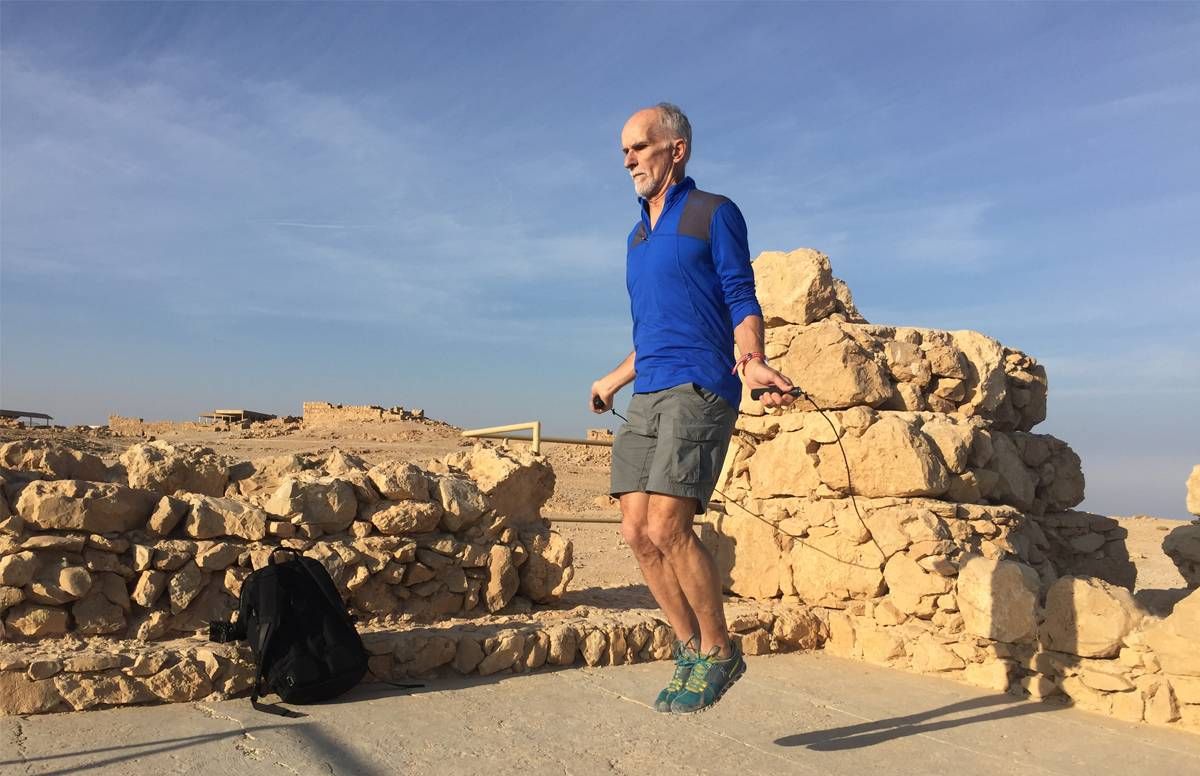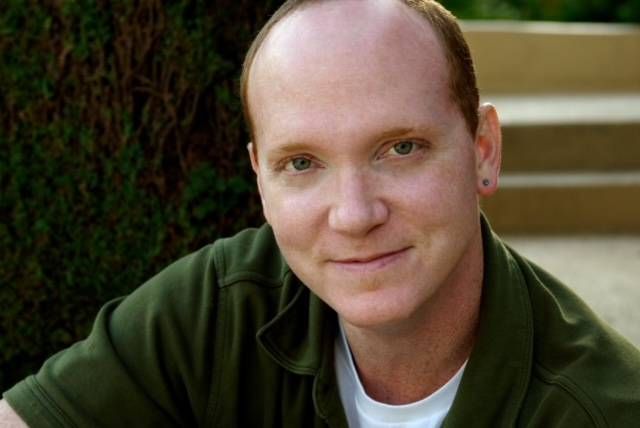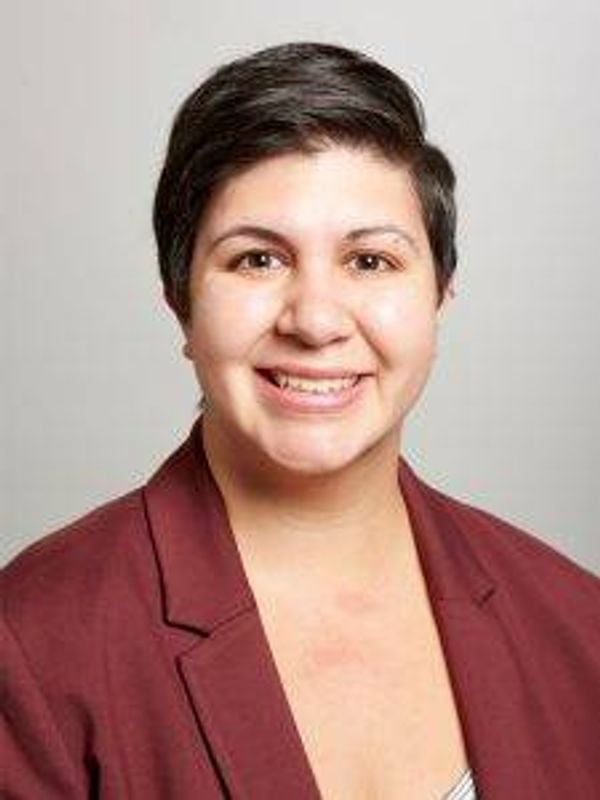In For the Long Haul: When COVID-19 Symptoms Won’t Go Away
Many 'long haulers' struggle with exhaustion, aches and trouble breathing
Ever since he contracted the coronavirus in mid-March, Jake Elsas, 53, has spent every waking moment feeling like he’s had the worst sleep of his life. The kind of sleep “where a person fitfully rolls around for hours and, once in temporary slumber, has nothing but anxiety dreams and nightmares. Tired and groggy and lethargic, the cobwebs in my head become an impermeable blanket. And that’s on a good day," said Elsas, who lives in Atlanta.

On a not-so-good day, he experiences a complete meltdown. Elsas says the exhausting crash (also known as a flare or post-exertional malaise) is “brutal and terrifying.” He's the executive director of a nonprofit art and history center.
On top of brain fog, Elsas suffers from what he describes as a “perfect storm of coughing, sweating and debilitating fatigue,” now accompanied by ringing in his ears, or tinnitus.
And he is one of the lucky ones. As sick as he was with COVID-19, Elsas was never hospitalized, never on a ventilator, had no fever and had no trouble breathing, even at his worst.
Yet six months after falling ill, he still feels terrible.
Our Commitment to Covering the Coronavirus
We are committed to reliable reporting on the risks of the coronavirus and steps you can take to benefit you, your loved ones and others in your community. Read Next Avenue's Coronavirus Coverage.
Persistent Symptoms and Erratic Recovery
Elsas is one of the so-called "long haulers,” also known as having "long COVID" or "post-COVID syndrome." They experience persistent symptoms long after recovering from the acute phase, which often was relatively mild. Their recovery is erratic, with continuing and even new symptoms that fluctuate in intensity.
The Centers for Disease Control and Prevention (CDC) found that about a third of people with milder bouts of COVID-19 who hadn't been hospitalized had prolonged illness and persistent symptoms for weeks after contracting the coronavirus. On his nightly cable show, CNN's Chris Cuomo often talks of his own experience as a long hauler.
The COVID-19 “Long-Hauler” Symptoms Survey Report, conducted by Natalie Lampert at Indiana University School of Medicine, surveyed more than 1,500 people from the online support group Survivor Corps. The most common symptoms were severe fatigue, muscle or body aches and respiratory issues, including shortness of breath or chronic cough. Many also reported fever, chills, hair loss, racing heart, palpitations and other symptoms.
“COVID is not a cold, not the flu, not like anything I’ve ever experienced."
A May 2020 patient-led survey of 640 long haulers, done by the Body Politic COVID-19 Support Group, found that at the time of the survey, more than 90% had not yet fully recovered. Most of the respondents had not required hospitalization. The support group was started by journalist Fiona Lowenstein, a long hauler who contracted the virus in March at age 26.
A follow-up three months later found that the majority of individuals had symptoms 20 to 25 weeks after the initial illness. There was a surprising preponderance of neurological issues, with many experiencing “brain fog," memory problems, headaches, insomnia and depression/anxiety.

Age Isn't a Predictor for Long Haul COVID-19
Dr. Joan Bosco, a primary care physician at the Center for Post-COVID Care at Mount Sinai in New York City, found that in the patients she treated during a two-month period, fatigue was the number one presenting symptom, followed by shortness of breath, cognitive impairment, neuropathy (numbness/tingling), anxiety, nightmares and alterations in taste/smell.
Bosco notes that in the patients she has seen, “Age hasn’t seemed to factor into who will develop residual symptoms. I have seen previously healthy twenty-year-olds who still can’t get out of bed, and seventy-year-olds who are back to their regular workout routines.”
David Putrino, a neuroscientist at Mount Sinai Hospital, studied 1,400 long haulers and found the majority are women, with an average age of 44.
Some health care professionals, and even friends and family, do not comprehend the severity of the post-COVID experience and blame it on anxiety or stress.
Early in the pandemic, Mark Smith, 67, a cinematographer in Jersey City, N.J., had COVID-19. “This was the sickest I have ever been in my life. My skin was really trashed. I looked gray, pallid and wrinkly, and felt like I had aged about ten years in less than two weeks,” he says. Smith continued to test positive in June, indicating that his viral load was still high.
A racer and cyclist who had prided himself on his strength and stamina, Smith found his major problems recovering were general weakness and fatigue, along with some COVID-19-related eye, neurological and possible clotting problems. “COVID is not a cold, not the flu, not like anything I’ve ever experienced,” he says.

No One-Size-Fits-All
An August 2020 article published in the British Medical Journal stated that COVID-19 tends to affect older people more severely in the acute phase, as well as certain ethnic groups, including people who are Black, South Asian and Jewish.
The article says it is too soon to know if these disparities will persist in long haulers. Many patients, particularly older ones, have co-morbidities (other medical conditions such as diabetes or high blood pressure), which may influence the duration of their Post-COVID-19 symptoms.

Cardiac problems such as myocarditis (inflammation of the heart), heart rhythm abnormalities and blood clots are seen more commonly in patients, often older, with pre-existing cardiovascular disease.
Bosco has been struck by how profound some of these COVID-19 residual symptoms are, especially the cognitive impairment and debilitating post-exertional (after activity) malaise.
“While I do observe general trends and similarities among the symptomatic post-COVID patients, everyone seems to present with their own unique take or ‘flavor,” says Bosco.
She says this post-viral syndrome appears to have many complex factors — "with inflammation certainly playing a role, as well as physical deconditioning after a severe illness, worsened nutritional status, poor sleep and psychiatric stressors, among others. Given this, there is not a one-size-fits-all explanation or treatment plan.”
Because many people did not get tested for the coronavirus, and because of the number of false negatives in those who were, a person can be a long hauler without ever having a positive coronavirus or antibody test.
This has led many patients to complain of “medical gaslighting,” or minimizing their symptoms. They point out that some health care professionals, and even friends and family, do not comprehend the severity of the post-COVID experience and blame it on anxiety or stress.
Signs of Chronic Fatigue Syndrome
Some long haulers are beginning to show signs of a post-viral syndrome known as myalgic encephalomyelitis, also known as chronic fatigue syndrome. Its main feature is complete exhaustion after physical activity or cognitive overload, often worsening 24 hours after the triggering event.
Because symptoms must be present for six months, doctors are just beginning to acknowledge that a cohort of patients may end up with this long-term, debilitating disorder.
Yet the news is not all bad. Bosco says one method that is persistently helpful to post-COVID patients is supervised exercise programs that include breathing and chest exercises as well as those that improve physical strength and stamina.
Smith recently ran past the Statue of Liberty from his home. “While I still don’t feel as good running as I did seven months ago, I was able to get out for that run," he says. "I have done some hard races over the years and I have the mental framework to persevere. I am continuing to improve and to get my endurance and strength back. For that, I am thankful.”


